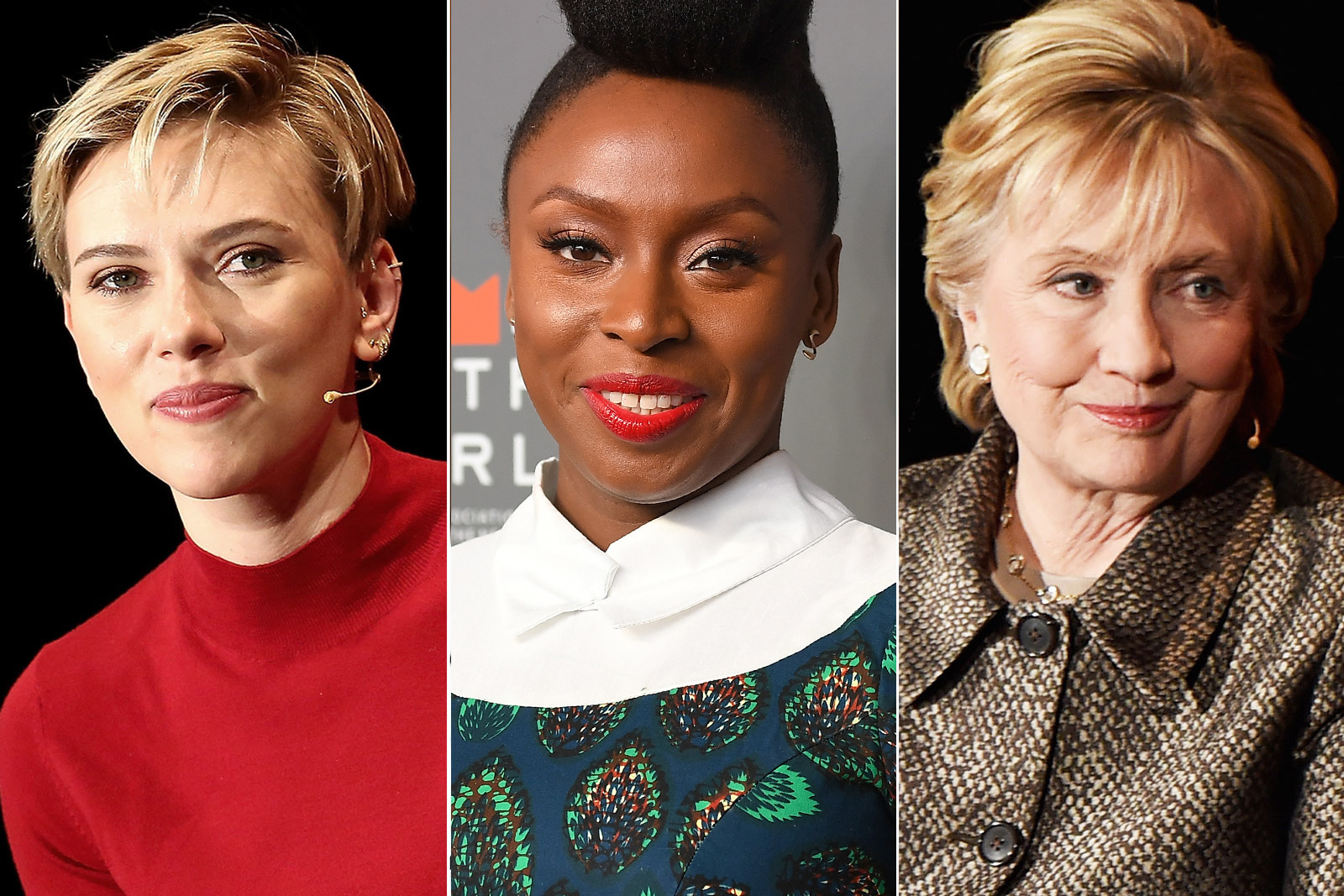
Accomplished, powerful women from all fields met onstage at the 2017 Women in the World Summit this week in New York City.
Panels covered everything from women’s representation in advertising to defeating white supremacy and how to raise a feminist. Actor Scarlett Johansson shared fierce words for Ivanka Trump; Canadian Prime Minister Justin Trudeau discussed the importance of promoting women into positions of power; Nikki Haley opened up about her role as U.S. Ambassador to the United Nations; and former Secretary of State Hillary Clinton discussed how she believes misogyny affected the 2016 presidential election.
Among the conversations, five major themes stood out.
Gender inequality remains unambiguous
Gretchen Carlson, a Motto columnist and the former Fox News anchor whose sexual harassment lawsuit sparked the investigation that led to Roger Ailes’ resignation, described having been contacted by thousands of women since she came forward. “In 2017, every damn woman still has a story,” she said.
One of the contributing factors to the abuse of women is how they are portrayed in consumer advertisements. P&G chief brand officer Marc Pritchard noted that ads have the power to impact how people see themselves, and advertisers should be careful to avoid glorifying the mistreatment of women and unattainable body images.
“This is not how whole human and strong women act,” said Madonna Badger, chief creative officer and founder of advertising and branding agency Badger & Winters, pointing to an ad featuring Gigi Hadid, Lily Aldridge and Joan Smalls huddled together wearing nothing but shoes, with “Stuart Weitzman” printed across their bodies. “We certainly don’t have men’s names tattooed across our bottoms.”
And women account for a mere 5% of Fortune 500 CEOs.
But women are pretty powerful
The strength, resilience and economic power of women is undeniable. Women make 85% of purchasing decisions, according to AT&T Chief Brand Officer Fiona Carter, which means that if women set out with the intention to support businesses that promote equality, they can affect change. “I can’t stress enough the power we have as women to make economic choices,” Badger said.
Evidence of the power of portraying women as strong: A new advertisement for AT&T, which features a rare female voiceover and female actors cast as CEOs, is the company’s best-performing campaign, Carter noted.
At the office, “gender diverse leadership teams lead to higher returns on equity, higher returns on sale, greater client engagement, greater employee engagement, greater innovation,” said Sallie Krawcheck, the CEO of Ellevest. “The power of diversity is so substantial.”
Women have incredible value in politics, as well. First Minister of Scotland Nicola Sturgeon noted that “peace becomes more sustainable when women are involved,” and Trudeau explained that putting women in leadership positions “makes good economic sense.”
But women have to keep speaking up
Panelists across the board let out a resounding cry to defy silence. This ranged from YouTube CEO Susan Wojcicki tweeting a photo of her breast milk in the snow at the 2016 Davos summit (“No freezer required #womenshealth”), to Carlson’s argument that forced arbitration clauses lead to mass under-recognition of sexual harassment in the workplace, and Johansson’s criticism of Ivanka Trump: “If you take a job as a public advocate, then you must advocate publicly.”
Sturgeon also explained why she chose to reveal she had suffered a miscarriage — people assumed she never had children because she’d made a “cold and calculated” decision to prioritize her career. “There’s absolutely nothing wrong with a woman who decides not to have children,” she said. “I decided to speak out… just to try to challenge those kinds of assumptions.”
“Women are woke in this country,” Cecile Richards, president of the Planned Parenthood Federation, said in conversation with author Chimamanda Ngozi Adichie. “Don’t give up. March, go to town hall meetings, call your reps.”
Men need to join in the fight for equality
The support of men is an important part of women’s empowerment: “Power is transferred by those who have it,” Wojcicki said. Others, including Carlson and filmmaker Sharmeen Obaid-Chinoy, who won an Academy Award for her film about a Pakistani honor killing survivor, also pointed to the importance of men’s support. Obaid-Chinoy and Wojcicki each described important moments in their lives when they were encouraged by male colleagues or family members.
“We can’t just talk about how women need to be empowered without talking to the people who unfairly still have more power: the men,” Trudeau said. “The men have to be part of the solution.”
Queen Latifah, who spoke on the advertising panel, also noted that the fight against gender stereotypes is a two-way street: “We have to think about our young men,” she said. “We can take some of the pressure off guys to be so linear.”
Oh, and Clinton should have been President
That’s according to Samantha Bee, who introduced the former Secretary of State as “Hillary Rodham Beyonce Clinton,” and said, “It should have been you.” For many Women in the World participants, the highlight was Clinton’s interview with New York Times columnist Nicholas Kristof.
Clinton offered a lesson she learned from her experience for all women to consider: “Part of the bullying and part of the name-calling — and that has certainly become more pervasive — is to crush your spirit,” she said. “Take criticism seriously, but not personally.”
More Must-Reads from TIME
- Donald Trump Is TIME's 2024 Person of the Year
- Why We Chose Trump as Person of the Year
- Is Intermittent Fasting Good or Bad for You?
- The 100 Must-Read Books of 2024
- The 20 Best Christmas TV Episodes
- Column: If Optimism Feels Ridiculous Now, Try Hope
- The Future of Climate Action Is Trade Policy
- Merle Bombardieri Is Helping People Make the Baby Decision
Write to Lucy Feldman at lucy.feldman@time.com